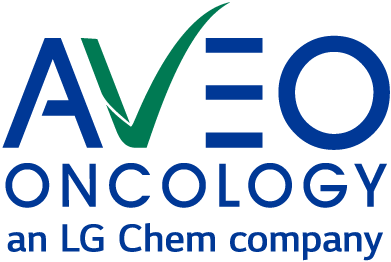April 18, 2007
Novel Human Tissue Transgenic Cancer Model May Offer Significant Advance Toward Accurately Modeling Human Cancer
– AVEO Pharmaceuticals Success with Breast Cancer Mouse Model Presented Today at AACR –
LOS ANGELES CAMBRIDGE, Mass.–April 18, 2007–AVEO Pharmaceuticals, Inc., a biopharmaceutical company focused on the discovery and development of novel, targeted cancer medicines, presented today findings from its novel human-in-mouse (HIM) tissue transgenic cancer model system, in which AVEO successfully created invasive human tumors that develop over time in mice from primary human breast tissue. This model enables scientists, for the first time, to generate and study in vivo, human tumor initiation, progression and treatment in a preclinical model. This groundbreaking model was presented today in a session entitled “Mouse Models of Cancer 6: Signaling Mechanisms in Initiation, Progression and Therapeutics” at the 100th American Association for Cancer Research (AACR) Annual Meeting in Los Angeles, California.
“For decades, human cancer cell line-derived xenografts have been the in vivo models of choice for pre-clinical studies, and with a few notable exceptions, those xenograft models have not been predictive of human clinical efficacy,” said Tuan Ha-Ngoc, president and CEO of AVEO Pharmaceuticals. “As a result, clinical development in oncology remains largely empirical, resulting in a greater than 90 percent failure rate and long development timelines with significant capital risk. We believe our HIM model represents the next generation in modeling that will ultimately revolutionize early clinical development.”
Murray O. Robinson, PhD, senior vice president of Translational Research at AVEO, added, “One issue with cell line xenografts is that the cell culture conditions for establishing cancer cell lines impart strong selection pressures that are different from those experienced by cells in an in vivo environment. Our proprietary models as part of the Human Response Prediction(TM) Platform provide a defined genetic context as well as an accurate tissue context in which to validate cancer gene candidates, determine their biological roles in various stages of cancer progression, and test targeted therapies directed against specific genetic lesions found in human breast cancers. We have been very encouraged by the similarity to human patients in both histological appearance and response to agents like Herceptin(R) (trastuzumab).”
AVEO’s Proprietary Human Tissue Transgenic HIM Model
AVEO sought to generate an in vivo model of human breast cancer in mice (HIM) by employing a unique tissue recombinant system comprised of human breast stromal cells and epithelial organoids engineered with defined transgenes. Depending on the combination of transgenes employed, the reconstituted human breast tissue developed into preneoplastic lesions (Carcinoma In Situ or CIS) or to invasive adenocarcinomas. Importantly, despite using the same set of genetic alterations, significant variation in tumor phenotype was observed among tumors depending on the source of donor organoids. This last observation suggests that differences in the genetic makeup individual donors may influence the development and progression of these tissue transgenic breast tumors. Because this observed variation is similar to what is seen across human breast cancer patients, AVEO is generating a large number of individual tissue transgenic breast tumors to create a population of tumors in which to explore the relationship between this variation and response to anti-cancer agents.
Ha-Ngoc added, “In addition to capturing variation across a population, the ordered progression observed in this model also provides an opportunity to test drug efficacy in treating early stage tumors. We believe the ability to create genetically manipulated human tumors that develop entirely in an in vivo context may provide a significant advance toward accurately modeling human cancer, which will enable AVEO to guide our clinical development and generate more effective, targeted treatments for cancer.”
About AVEO
AVEO is a private biopharmaceutical company focused on the discovery and development of novel, targeted cancer therapeutics. The company utilizes its proprietary, genetically-defined cancer models for the identification and validation of novel cancer targets, and has begun to build an impressive portfolio of drug discovery and development programs around these high-value targets. AVEO also uses its Human Response Prediction(TM) Platform to identify genetic profiles that correspond with patient responsiveness. AVEO expects to commence Phase 2 clinical studies by mid-2007 for AV-951, its oral, second-generation VEGF receptor inhibitor and most advanced clinical program. AV-412, AVEO’s EGFR/HER2 inhibitor, is currently in Phase I clinical trials. AV-299, a novel anti-HGF mAb, is currently being manufactured by XOMA under a supply agreement in anticipation of entering the clinic in early 2008. AVEO is located in Cambridge, Massachusetts. For more information, please visit the company’s website at www.aveopharma.com.
